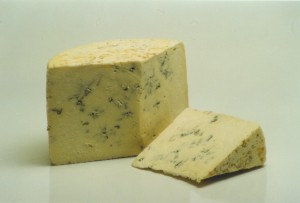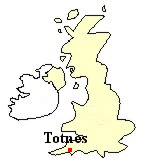 |
|
||||||
In this country, goat's cheese has been gaining popularity over the last 30 years. During the 70s and 80s alone, UK production doubled, and has been on the rise ever since. Farmers like Robin Congdon at the Ticklemore cheese company are keen to promote the virtues of goats' and ewes' milk cheeses against the more well established cows' milk cheeses. It was once the case that the variety of goat's cheeses could be questioned. Generally the nature of goat's milk lends itself to making smaller, soft cheeses, which mature rapidly. However, at the Ticklemore Cheese Company they have managed to break free from this mould, and have made a very successful business out of making larger, blue cheeses from both ewe's and goat's milk. Before becoming a cheesemonger, Robin Congdon had worked as a farmer on the same estate in which he makes his cheese today. One of the first to re-introduce the milking of sheep for cheese in this country, he decided to give up farming to concentrate on cheese making. On their farm, which is now a house and dairy combined, he and his partner Sarie Cooper have established a name for themselves with cheeses such as Ticklemore and Beenleigh Blue. Awarded several accolades over the past few years, Harbourne Blue has become very popular amongst cheese connoisseurs. The goat's milk tends to give it a characteristically white pāte and crumbly texture, and also means that it matures more quickly than a cow's milk cheese The resulting flavour is usually more powerful and the fact that this cheese is blue veined enhances the flavour even further to give a cheese that is best tasted at the end of a cheeseboard. However, as Robin Congdon himself admits, the strength can vary considerably throughout a season. A strong full bodied wine is therefore the best accompaniment. Made by hand using only local milk, Harbourne Blue comes in 3kg rounds that have been matured for 2½ months. Each cheese is approximately 20cm in diameter, 15cm tall and has a fat content of 48%. It is made all year round, although it is in short supply during the winter and early spring. Click here or press your 'Back' button to return |
|
||||||
| All articles © www.teddingtoncheese.co.uk | |||||||
